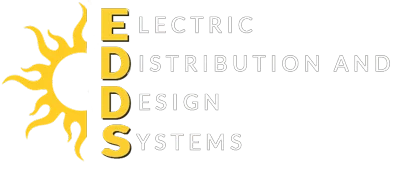Solar energy is becoming increasingly popular as homeowners seek sustainable and cost-effective ways to power their homes. One of the essential components of a solar energy system is the solar battery. Choosing the right solar battery can seem daunting, especially for beginners. This guide will help you understand the key factors to consider when selecting a solar battery for your system.
What Solar Batteries Do?
Solar batteries store the excess energy generated by your solar panels during the day for use at night or during cloudy periods. This ensures a consistent power supply and maximizes the efficiency of your solar energy system. There are several types of solar batteries, each with its own set of advantages and disadvantages.
Types of Solar Batteries
- Lead-Acid Batteries
- Pros: Affordable, reliable, and widely available.
- Cons: Shorter lifespan, lower depth of discharge (DoD), and requires regular maintenance.
- Lithium-Ion Batteries
- Pros: Longer lifespan, higher efficiency, higher depth of discharge, and minimal maintenance.
- Cons: Higher initial cost.
- Saltwater Batteries
- Pros: Environmentally friendly, safe, and long lifespan.
- Cons: Lower efficiency and less proven technology compared to lithium-ion.
- Nickel-Based Batteries
- Pros: Durable and long-lasting.
- Cons: Expensive and prone to overheating.
Key Factors to Consider
When choosing a solar battery, several factors should be taken into account to ensure it meets your specific needs and system requirements.
- Capacity and Power
- Capacity: Measured in kilowatt-hours (kWh), capacity indicates the total amount of energy the battery can store. Choose a battery with enough capacity to meet your household’s energy demands.
- Power: Measured in kilowatts (kW), power indicates how much energy the battery can deliver at once. Ensure the battery can handle the peak power requirements of your home.
- Depth of Discharge (DoD)
- The DoD represents the percentage of the battery’s capacity that can be used before it needs to be recharged. A higher DoD means you can use more of the battery’s capacity, increasing efficiency. Look for batteries with a DoD of 80% or higher.
- Efficiency
- Efficiency refers to the amount of energy stored in the battery that can be retrieved for use. Higher efficiency means more of the stored energy is available for use. Aim for batteries with an efficiency rating of 90% or higher.
- Lifespan and Warranty
- The lifespan of a solar battery is measured in cycles, which refers to the number of times the battery can be charged and discharged before its capacity significantly degrades. Consider batteries with a longer lifespan and a comprehensive warranty to ensure long-term reliability.
- Cost
- While the initial cost of a solar battery is a significant factor, consider the long-term savings on your energy bills. Lithium-ion batteries, for example, have a higher upfront cost but offer better efficiency and longevity, making them cost-effective over time.
Installation and Compatibility
Ensure the solar battery you choose is compatible with your existing solar energy system. Consult with a professional installer to verify compatibility and proper installation. Some batteries come with integrated inverters, which can simplify the installation process.
Future-Proofing Your System
Consider potential future expansions of your solar energy system. Choosing a modular battery system allows you to add more storage capacity as your energy needs grow, ensuring your system remains adaptable and efficient.
Bottom-line
Selecting the right solar battery for your system involves careful consideration of various factors, including capacity, power, depth of discharge, efficiency, lifespan, and cost. By understanding these key aspects and consulting with professionals, you can choose a solar battery that meets your energy needs and maximizes the benefits of your solar energy system. Investing in the right solar battery is a crucial step towards achieving energy independence and sustainability for your home.
